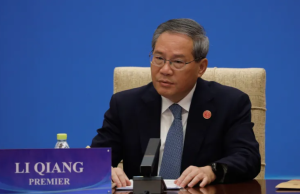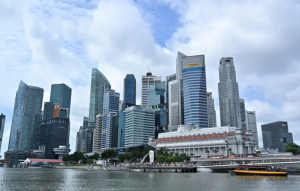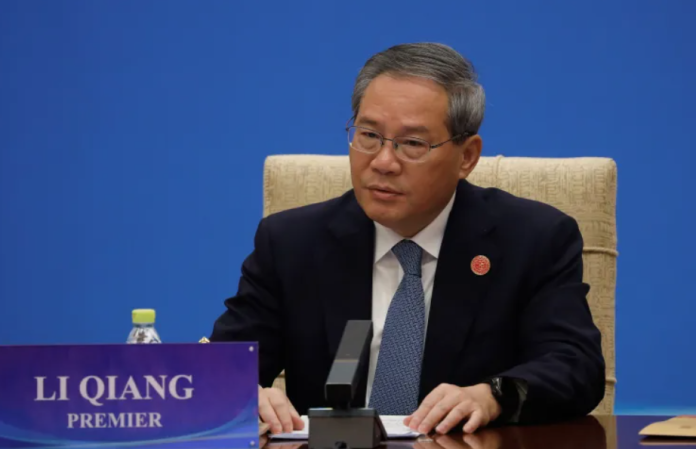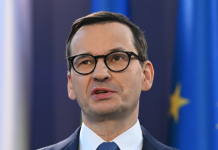Some 15,200 Chinese millionaires were expected to relocate in 2024, according to Henley & Partners.
Taipei, Taiwan – Five years ago, Jane Meng travelled from her home in Shanghai to Hong Kong to get herself something special for her birthday.
The 31-year-old wealthy owner of an import-export company was not looking for a watch or a designer handbag.
Instead, she came for critical illness insurance.
“I didn’t have faith in the Chinese healthcare system and insurance market being able to provide the care and insurance that I might need later in life,” Meng, who asked not to be referred to by her real name, told Al Jazeera.
“So, I decided to go and open up a bank account in Hong Kong and get the insurance there instead.”
Since then, as Meng’s wealth has grown, she has only expanded her financial dealings outside mainland China.
Today, she conducts much of her business through Hong Kong, and she recently set up a bank account in Singapore to which she has moved much of her assets.
“I don’t want to have too much of my money in China, because I feel like in a lot of ways, China is not in a good place right now,” she said.
China’s economy is facing some of its most challenging circumstances in decades.
Economic activity has slowed well below the historical trend, raising doubt that Beijing will hit its target of approximately 5 percent growth in 2024. Youth unemployment is elevated, hovering above 17 percent.
Household spending, at about 40 percent of gross domestic product (GDP), remains far below the global average, and the property market continues to be in the grip of a prolonged slump that has seen prices drop about 8 percent from their peak.
At the same time, sweeping crackdowns on a large number of industries, from tech to finance and private tutoring, have sent jitters through the business world in recent years, as have the disappearances of high-profile businessmen such as Bao Fan.
Bao, one of the most well-known investment bankers on China’s tech scene, has not been heard from since February 2023, when his investment China Renaissance announced that he was “cooperating” with an investigation.
Authorities have provided no details on any allegations against him or the status of any case.
“With all that has happened, I don’t think it is safe to be dependent on the Chinese market,” Meng said.
“The situation is just too unstable.”
After moving much of her money out of China, Meng has given thought to relocating someday as well.
“I have definitely considered leaving altogether,” she said.
“I am just one small business owner, but I know that a lot of much more wealthy people with a lot more assets are considering leaving China too.”
Many wealthy Chinese have already made the plunge.
Last year, China saw 13,800 high-net-worth individuals leave the country – a 28 percent rise from 2022 and the most of any country, according to a report by investment migration firm Henley & Partners.
The firm expects a record 15,200 Chinese millionaires to have relocated by the end of 2024.
The outflow does not constitute a mass exodus, since China was home to 6.2 millionaires as of 2021, according to a report by Credit Suisse and UBS.
“But if it is the beginning of an accelerating trend, then it can present an economic challenge for China,” Allan Von Mehren, chief analyst and China economist at Danske Bank, told Al Jazeera.
When millionaires depart, they tend to take their wealth with them.
Among China’s foreign investors, such capital flight has already made a mark.
In the second quarter of this year, overseas firms pulled a record $15bn out of China.
According to Sara Hsu, an associate professor at the University of Tennessee who studies Chinese fintech and shadow banking, a surge of money outflows would only do further damage to the already struggling Chinese economy.
“So, they should be worried about capital flight,” Hsu told Al Jazeera, referring to the Chinese government.
But Chinese authorities are already well aware of the problems that a mass exodus of wealthy Chinese could pose, according to Von Mehren.
“That is partly why we have seen the Chinese government go on a charm offensive trying to reassure people in the private sector,” he said.
After years of crackdowns on the private sector, officials have of late struck a more business-friendly tone.

Chinese Premier Li Qiang proclaimed in January that the Chinese economy was open for business and pledged to “take active steps to address reasonable concerns of the global business community.”
In November, Qiang met with senior executives from some of China’s leading tech firms, raising hopes that the crackdown on the sector was ending.
“Since the crackdowns in the private sector, there has been a breakdown of trust between the central authorities and segments of the Chinese business community,” von Mehren said.
“If they can restore trust, they might be able to stem the flow of people seeking away from China.”
If words of reassurance fail to calm investors’ nerves, Chinese authorities can look to their strict capital controls to try to prevent individuals from transferring their assets out of the country.
Chinese nationals are only allowed to transfer the equivalent of $50,000 out of the country each year.
Banks and other financial institutions also have to report all domestic and overseas cash transactions of more than 50,000 yuan ($7,000) to the authorities, while cash deposits and withdrawals of a similar amount have to be registered.
Still, wealthy Chinese have found ways to skirt such controls.
It is not uncommon for wealthy individuals to use family members to move funds, according to Hsu, or to buy assets such as gold bars that can be moved abroad.
“But others are turning to underground money handlers,” Hsu said.
These handlers make up a vast global network that facilitates the transfer of funds around the world through a variety of channels.
One common method employed by Chinese shadow bankers, known as “smurfing”, involves recruiting people who have not used their annual $50,000 transfer limit.
In one case reported by Chinese state media, a man surnamed Li was accused by authorities of single-handedly overseeing a network of 102 individuals that facilitated the transfer of millions of dollars out of the country every year.
In December, Chinese authorities announced that they had dismantled more than 100 underground money-handling operations since May and traced illicit financial transactions totalling about $11bn.
“Underground money handlers are usually connected to criminal activities and are considered illegal finance in China,” Hsu said.
“It is very risky to use them, especially during a serious government crackdown, but they are functional and can move large amounts of money out of the country.”

For those who succeed in transferring their assets abroad, Singapore is among the most popular choices.
Wealthy Chinese people have set up hundreds of wealth management offices in the city-state in recent years and accounted for the largest cohort of foreign buyers of luxury homes in 2022.
The influx, as well as a recent money laundry scandal, has led to increased scrutiny of incoming Chinese wealth by the Singaporean authorities.
The Monetary Authority of Singapore earlier this year denied two family office applications with Chinese-affiliated wealth, Nikkei Asia reported in March, citing two sources familiar with the matter.
Still, Singapore remains a top destination for China’s departing millionaires along with Canada and the US, according to Henley & Partners.
If Meng were to leave China, there is little doubt in her mind about where she would go.
“I used to live and study in Singapore, so I would choose to settle there,” she said.
“It would be the most convenient for me.”






















